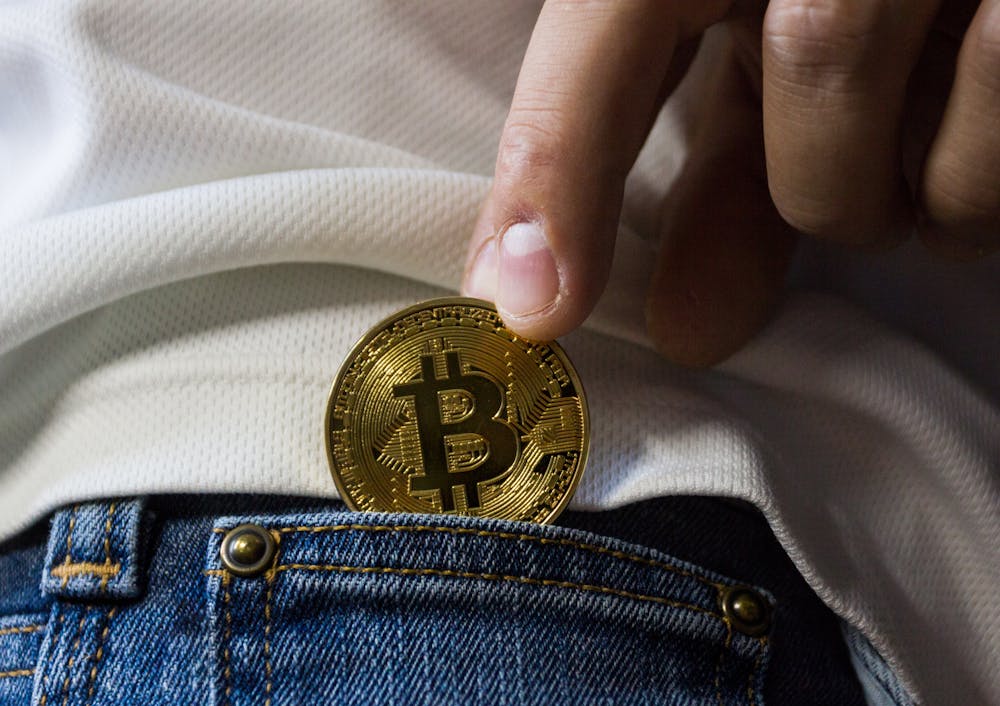Financial Lessons Learned (and Lost) with Bitcoin Gambling

The allure of quick wins and the excitement of high-stakes betting have drawn many into the world of Bitcoin gambling. The decentralized nature of cryptocurrencies, coupled with the promise of anonymity and fast transactions, creates a unique gambling experience. However, beneath the surface of potential gains lies a harsh reality: Bitcoin gambling, like any form of gambling, carries significant financial risks. This post aims to explore the crucial financial lessons that can be learned (and often painfully lost) in the Bitcoin gambling arena. It is vital to emphasize from the outset: gambling can lead to substantial financial losses, and responsible gambling practices are paramount.
The Allure of Bitcoin Gambling:
Several factors contribute to the appeal of Bitcoin gambling:
- Pseudonymity: While not entirely anonymous, Bitcoin transactions offer a higher degree of privacy compared to traditional banking methods.
- Fast Transactions: Deposits and withdrawals are typically processed much faster than with traditional payment processors.
- Entertainment and Excitement: The thrill of gambling, combined with the novelty of using cryptocurrency, creates an engaging experience.
- Perceived Potential for Large Wins: The volatile nature of Bitcoin can lead to the perception of larger potential returns, although this is often balanced by equally significant risks.
Financial Lessons Learned (and Lost):
1. Volatility is a Double-Edged Sword: Bitcoin’s price is notoriously volatile. This volatility can significantly impact the value of your winnings and losses.
Example: Imagine winning 1 BTC when its price is $20,000. Your winnings are worth $20,000. However, if you win 1 BTC when the price is $60,000, your winnings are suddenly worth three times as much. Conversely, losing 1 BTC at $60,000 is a much more significant financial hit than losing it at $20,000. This volatility adds an extra layer of risk not present in traditional currency gambling.
2. Bankroll Management is Crucial: Effective bankroll management is essential for any form of gambling, but it’s especially critical with Bitcoin due to its volatility.
- Set a Budget: Determine a specific amount of Bitcoin you are willing to risk and never exceed it.
- Avoid Chasing Losses: Resist the urge to bet more to recoup losses. This is a dangerous trap that can lead to significant financial problems.
- Set Win Limits: While it might seem counterintuitive, setting win limits can help you lock in profits and avoid giving them back to the house.
- Example: Allocate only a small percentage (e.g., 1-5%) of your total crypto holdings for gambling as entertainment.
3. Fees Can Eat into Profits (or Exacerbate Losses): Bitcoin transactions incur network fees, and some platforms may also charge deposit or withdrawal fees. These fees can reduce your winnings or increase your losses.
- Compare Platforms: Research different crypto gambling platforms and compare their fee structures.
- Consider Network Congestion: Bitcoin network fees can fluctuate based on network congestion. Be mindful of this when making transactions.
4. The House Always Has an Edge: This is a fundamental principle of gambling. The games are designed so that the casino has a statistical advantage over the long run.
- Understand the House Edge: Familiarize yourself with the house edge of different games. This percentage represents the casino’s average profit from each bet.
- Example: A game with a 2% house edge means that, on average, the casino will keep $2 for every $100 wagered.
5. Security is Paramount: The crypto space is susceptible to scams and hacks. Choosing reputable platforms and practicing good security habits is essential.
- Choose Reputable Platforms: Only gamble on established and reputable crypto casinos with a proven track record.
- Strong Passwords and 2FA: Use strong, unique passwords and enable two-factor authentication (2FA) for added security.
- Cold Storage: For larger Bitcoin holdings, consider using cold storage (offline wallets) to protect your funds.
6. Taxes and Regulations: Depending on your jurisdiction, you may be required to report and pay taxes on your Bitcoin gambling winnings.
- Consult a Tax Professional: Seek professional advice regarding the tax implications of crypto gambling in your region.
- Stay Informed: The regulatory landscape surrounding crypto gambling is constantly evolving. Stay updated on the latest laws and regulations.
7. Emotional Gambling Leads to Financial Ruin: Gambling based on emotions is a recipe for disaster.
- Gamble Responsibly: Only gamble when you are in a clear and rational state of mind.
- Recognize Problem Gambling: Be aware of the signs of problem gambling and seek help if needed.
8. Diversification is Still Important: Bitcoin gambling should not be considered a viable investment strategy.
- Diversify Your Portfolio: Spread your investments across different asset classes to mitigate risk.
Real-Life Examples (Anonymized and Hypothetical):
- Example 1: John allocated a small portion of his Bitcoin to gambling. He set a strict budget and stuck to it, considering it entertainment expenses. While he experienced both wins and losses, he never risked more than he could afford to lose.
- Example 2: Sarah, driven by the excitement of a small win, started betting larger amounts and chasing her losses. She quickly depleted her Bitcoin holdings and incurred significant financial distress.
Responsible Gambling Practices:
- Set Time and Spending Limits: Decide how much time and money you will spend gambling and stick to those limits.
- Take Breaks: Avoid gambling for extended periods.
- Seek Help if Needed: If you feel you have a gambling problem, seek help from organizations like Gamblers Anonymous or similar resources in your area.
Our Conclusion:
Bitcoin gambling can be an exciting form of entertainment, but it’s crucial to understand the inherent financial risks. By adhering to responsible gambling practices, managing your bankroll effectively, and understanding the impact of volatility, you can minimize potential losses. Remember, gambling should always be viewed as entertainment, not a source of income. If you or someone you know has a gambling problem, please seek help.
